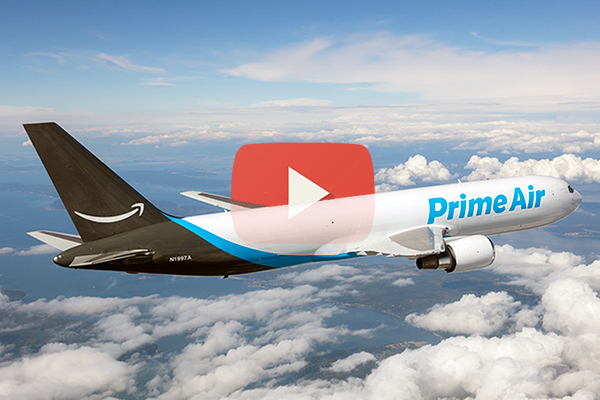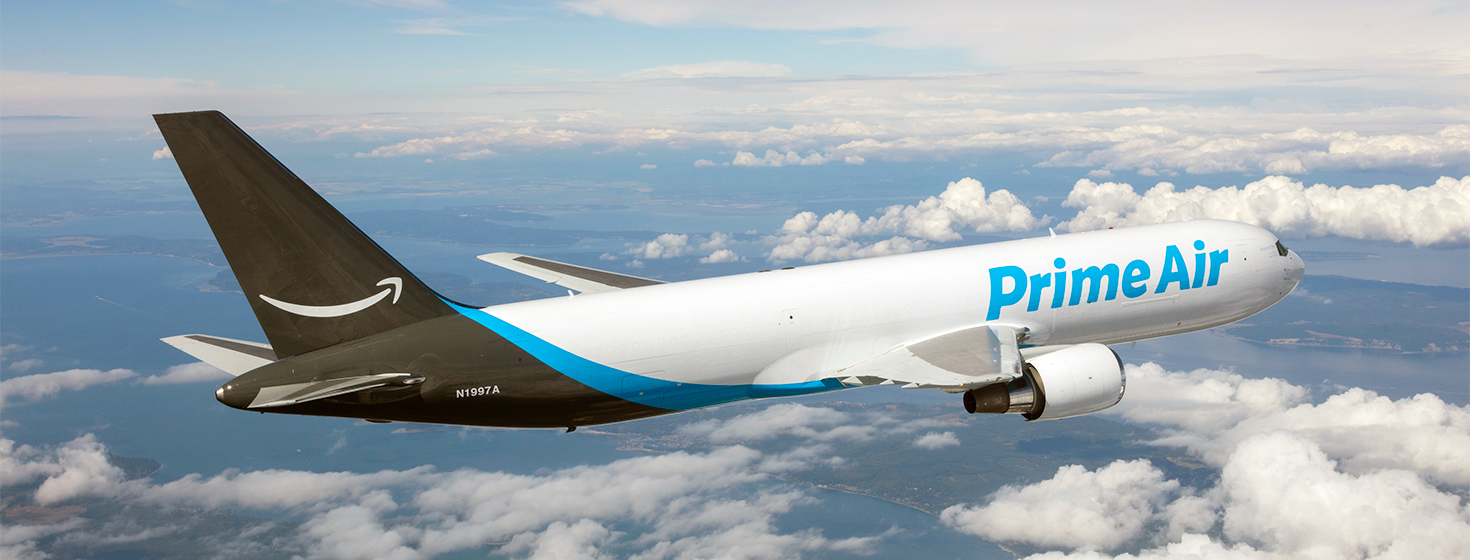Amazon Air
As reported by CNBC, Amazon aims to compete with FedEx and UPS in the logistics and shipping industry.
That's what analysts told CNBC after Amazon Air recently expanded to 50 planes and announced it will open a $1.5 billion air hub in Northern Kentucky in 2021.
Watch the Video (right): How Amazon Competes in Shipping
Amazon is handling up to 26% of its own shipping, meaning FedEx, UPS and the U.S. Postal Service are losing a portion of Amazon's business.
FedEx says it's not worried, but Morgan Stanley reports the major shippers have already lost 2% revenue to Amazon Air.
And according to Wolfe Research, the e-commerce giant is now handling its own shipping for 26 percent of online orders.
In a December press release, Amazon said that it can “transport hundreds of thousands of packages per day” with its new “dedicated air network” and that its fleet of planes makes “two-day shipping possible almost anywhere in the U.S.”
“Amazon is looking to become a logistics company in their own right,” said Ravi Shanker, Morgan Stanley's North American transportation analyst.
“We think that Amazon will be a top logistics provider, whether it's in trucking or in the air, in the coming years. I think the question is just how quickly they will ramp that operation.”
Amazon is even acknowledging the importance of this business to investors: In its 2018 annual financial filing released earlier this month, it listed “transportation and logistics services” among its group of competitors for the first time.
Why It Makes Sense for Amazon to Control Shipping
Amazon's shipping costs jumped 23 percent last quarter, reaching a record $9 billion. It spent $27 billion on shipping in 2018.
The more of these steps Amazon can control itself, the more it can control the costs.
“We estimate that Amazon will pay about $6 a box to move this themselves on their own air network, versus what we estimate Amazon paying UPS and FedEx: about $8 or $9 per box today ... and given Amazon's scale, that could be a couple of billion dollars at least in savings,” said Morgan Stanley's Shanker.
By bringing shipping in-house, Amazon also has more control over the speed of deliveries.
“Amazon's going to do more of its business in-house and they're going to just outsource the costly operations that they don't want to build capacity for, they're going to outsource it to carriers like UPS and FedEx,” said Tarek Abdallah, Northwestern University assistant professor of operations management.
“By gaining more control over their supply chain, they can make sure to provide a better service because if a customer does not receive his package on time, they're not going to blame UPS or FedEx, they're going to blame Amazon.”
Read: Amazon is Rapidly Expanding its Air Fleet to Handle More of its Own Shipping
Related Article: Amazon Reportedly Focusing on Expanding its Delivery Trial Offering Threatening FedEx & UPS
Industry Study looks at Inventory Management as a Critical Function within Omni-Channel Logistics
Omni-Channel Logistics Leaders: Top 5 Inventory Insights
Based on data collected from nearly 100 companies actively engaged in retail, manufacturing and logistics services, this research paper has provided several valuable insights ranging from current challenges & best practices, characteristics of companies considered high performers, and opportunities for improvement from companies lower on the omni-channel performance curve. Download Now!
Article topics
Email Sign Up




















